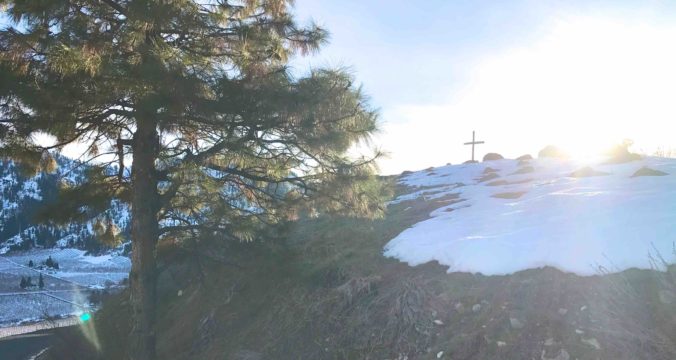Standing in the mouth of the cave, the wind whips his hair and beard.
He, the uncontested representative of Jehovah to a failing, flailing nation;
he, the leader of the charge so recent, that toppled a people’s confidence in the old idol-god, and that cost 850 false prophets their lives.
The wind whips, and the mountain sheds, and the tempest shreds rocks to pieces.
God has something to say to His servant. But He isn’t to be found in this wind.
After the wind, a deep growl. The eerie rumbling of an unstable earth. But the Lord isn’t in the earthquake either.
And then, a firestorm. Sheets of flame from nowhere, like the one that consumed the water and stone at Carmel not so long since. . .
But still, the Lord isn’t in the fire.
“. . . And after the fire a still small voice.” (1 Kings 19:12)
— — —
I’m thinking this is why the servant needs to be quiet.
My last post announced a quest to find just that. Need I say that ten days wasn’t enough, once I’d tasted it?
More on that later.
For today, this:
Not in mighty manifestations of divine power, but by “a still small voice,” did God choose to reveal Himself to His servant. . . Not by eloquence or logic are men’s hearts reached, but by the sweet influences of the Holy Spirit, which operate quietly yet surely in transforming and developing character. It is the still, small voice of the Spirit of God that has power to change the heart. PK 168.4-169.1

Leave a Reply